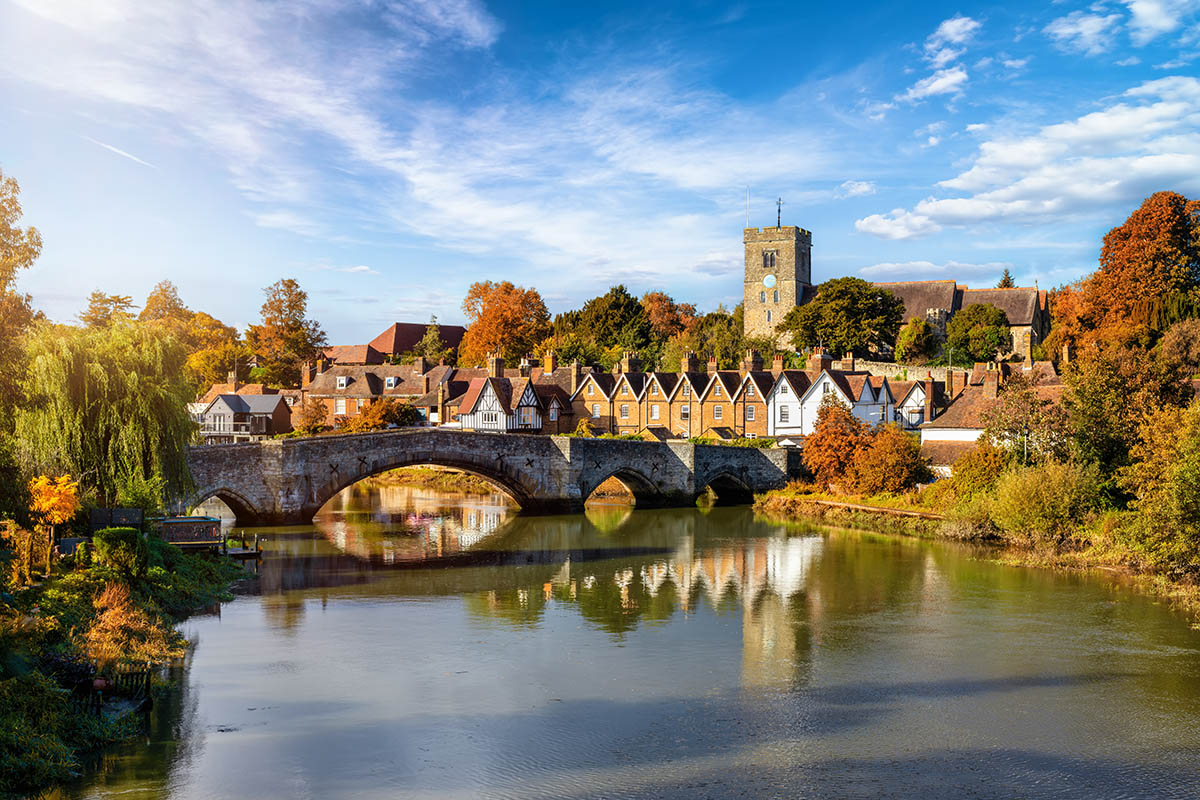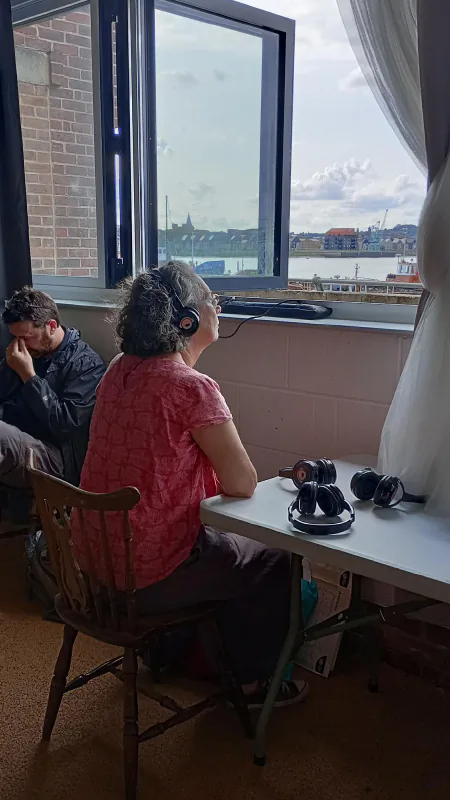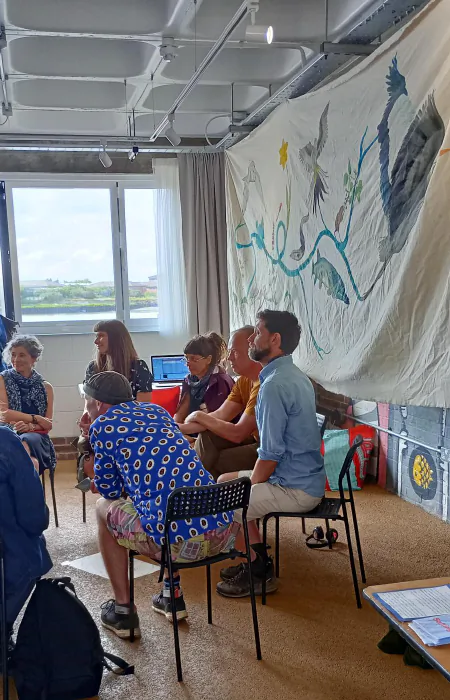
River Medway recently became the focus of a unique collaboration between researchers, artists, community members, and environmental advocates, united by a shared commitment to imagining new futures for the river and its ecosystems.
Led by the Friends of the River Medway, a week-long pilgrimage traced the river’s 70-mile course, combining ceremonial acts, citizen science, artistic expression, and advocacy. The journey culminated in a creative and research-focused workshop in Rochester, co-organised by the University of Greenwich, which brought together 40 participants, including local residents and river pilgrims. Friends of the River Medway is a group working to restore the health and vitality of the River Medway.
Creative methods to spark the imagination and listen as the river

The workshop, Medway Tales: Listening as the River, was co-designed by NRI’s Professor Valerie Nelson and Dr Victoria Leslie from the Faculty of Liberal Arts and Sciences (FLAS), in collaboration with sound artist Adrian Newton, visual artist Abigail Burt, and the Friends of the River Medway. The event provided participants with a multi-sensory experience that encouraged reflection on diverse ways of knowing the River Medway, including entangled ones of humans and other-than-human species such as plants, animals, the river itself.
Participants listened to immersive soundscapes combining human and other-than-human stories and sounds, played interactive games to explore multi-species futures and river rights, engaged in creative writing inspired by sounds of flowing water, and created photo collages envisioning desired and feared futures for the Medway. These methods allowed participants to think beyond conventional environmental and conservation approaches and imagine new ways for citizens to know and value nature.
Professor Valerie Nelson said: ‘Friends of the River Medway organised a vibrant and innovative approach, reconnecting river pilgrims and local people to the River Medway in instrumental and spiritual ways. This approach also built recognition of the potential to grant the river legal personhood or rights of nature.’

Our collaborative event, organised with Sun Pier Community Centre, Medway, helped articulate some of the entangled tales of the Medway, giving nature as well as local citizens an active voice and connecting with previous Canterbury Tale pilgrims who walked for a purpose. There are different ways to know the river, and our event sought to unpack some of these with local peoples and the pilgrims, tapping into different senses, such as sound, and encouraging exploration of more radical future pathways. We hope that the event will support further advancement of creativity and practical action for a flourishing Medway river, Professor Nelson noted.
Dr Victoria Leslie added: Our collaborative workshop took place amid paintings, textiles and sculptures created by local artists inspired by the River Medway, together with soundscapes and creative and participatory activities designed to inspire deep listening and engagement. Taking place on the final day of the Source to Sea festival, the workshop constituted a fitting end to Friends of the River Medway’s pilgrimage, where local people and river pilgrims could come together to celebrate the river flowing within view of Sun Pier Gallery and, embodied in sound, art and prose. The entangled tales shared and generated in the workshop reveal the profound interconnectedness of the river, its species and local people.
The workshop organisers will be sharing outputs from the event in due course and are exploring further collaborations in this space. Listen to the fascinating soundscape from the workshop here.

